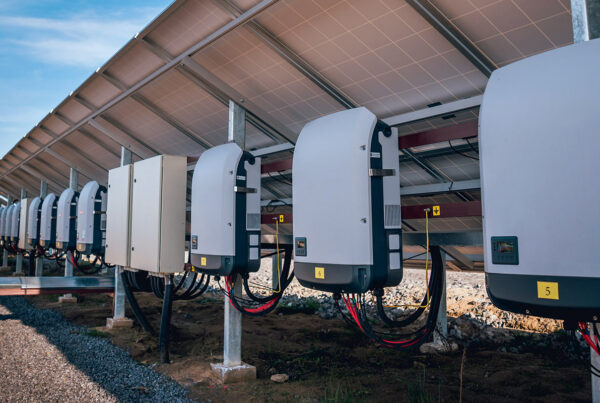The property management industry in the United Kingdom is undergoing a transformative shift towards sustainability. As the world grapples with the challenges of climate change, property managers are recognizing the importance of integrating sustainable practices into their operations. This article explores significant developments in the UK property management sector, focusing on the role of energy modeling services. Additionally, it highlights key sustainability accreditations and measurements relevant to property management and outlines their importance in the UK context.
Developments in sustainability and energy modeling services
- Energy performance certificates (EPCs): Energy Performance Certificates have become a crucial aspect of property management in the UK. EPCs provide an assessment of a building’s energy efficiency and carbon emissions. They inform property owners and tenants about the energy performance of a property, encouraging the implementation of energy-saving measures and supporting informed decision-making.
- Energy modeling services: Energy modeling services have emerged as a valuable tool for property managers. Through the use of advanced software and simulation techniques, energy modeling enables the analysis and prediction of a building’s energy performance. It helps identify areas for improvement, optimize energy systems, and inform design decisions for new developments or retrofits. Energy modeling facilitates the development of sustainable strategies by providing valuable insights into energy consumption, cost savings, and environmental impact.
- Building performance monitoring: Property managers are increasingly utilizing building performance monitoring systems to track and analyze energy usage in real-time. These systems provide data on energy consumption patterns, identify inefficiencies, and support the implementation of corrective measures. By actively monitoring building performance, property managers can make informed decisions to optimize energy usage, reduce operational costs, and minimize environmental impact.
Sustainability accreditations and measurements in property management
- BREEAM in-use: BREEAM In-Use is a sustainability accreditation specifically designed for existing buildings. It evaluates and rates the environmental performance of operational assets, including energy usage, water efficiency, waste management, and indoor environmental quality. BREEAM In-Use helps property managers identify areas for improvement and implement sustainable practices to enhance building performance and reduce environmental impact.
- LEED (Leadership in Energy and Environmental Design): Although originated in the United States, LEED has gained recognition and adoption in the UK property management sector. LEED certifications assess the sustainability performance of buildings across various categories, including energy efficiency, water conservation, materials usage, and indoor environmental quality. LEED provides a framework for property managers to enhance sustainability, improve tenant satisfaction, and increase market value.
- ISO 50001: ISO 50001 is an international standard for energy management systems. It provides a systematic approach to managing energy use, improving energy efficiency, and reducing greenhouse gas emissions. Property managers can implement ISO 50001 to establish energy performance baselines, set targets, and continuously improve energy performance through effective energy management practices.
Importance of sustainability in property management
- Environmental impact mitigation: Property management has a significant environmental impact, including energy consumption, water usage, and waste generation. By embracing sustainability, property managers can contribute to reducing greenhouse gas emissions, conserving resources, and protecting the environment for future generations.
- Operational cost reduction: Sustainable practices, including energy-efficient measures, can significantly reduce operational costs for property managers. By optimizing energy consumption, implementing energy-saving technologies, and adopting renewable energy sources, property managers can achieve substantial energy and cost savings.
- Regulatory compliance: Compliance with sustainability accreditations and measurements ensures adherence to regulatory requirements and promotes good governance. In the UK, EPCs are mandatory for property transactions, while sustainability accreditations like BREEAM In-Use and LEED demonstrate a commitment to environmental responsibility, enhancing compliance and public perception.
- Tenant attraction and retention: Tenants are increasingly prioritizing sustainability when choosing properties. Sustainable property management practices, such as energy-efficient buildings, healthy indoor environments, and reduced operational costs, attract and retain tenants who value environmental responsibility. Meeting tenant expectations for sustainability can enhance tenant satisfaction, occupant well-being, and long-term lease agreements.
Conclusion
Sustainability is playing a pivotal role in the evolution of property management in the UK. With a focus on energy modeling services, property managers can optimize energy performance, reduce costs, and minimize environmental impact. Accreditations and measurements like EPCs, BREEAM In-Use, LEED, and ISO 50001 provide valuable frameworks and benchmarks for achieving sustainability goals. By embracing sustainability, property managers demonstrate their commitment to environmental responsibility, regulatory compliance, cost savings, and tenant satisfaction. The integration of sustainable practices into property management is crucial for a greener, more efficient, and sustainable built environment in the UK.




